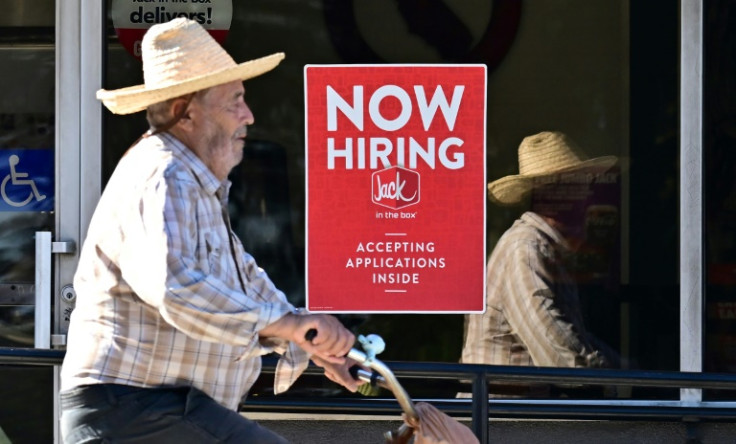US Private Sector Hiring Misses Expectations In August: ADP

Hiring in the US private sector markedly undershot analyst expectations in August, said payroll firm ADP on Thursday, as the labor market's health comes under scrutiny.
Private sector employment rose by 99,000 in August while job gains in July were revised down to 111,000, said ADP in a report.
A consensus forecast by analysts pegged growth at 150,000, according to Briefing.com.
The weaker-than-expected performance could fuel concern around the jobs market, which has held up in the face of high interest rates and lent support to consumer spending.
Data indicating the strength of the labor market could affect the size of upcoming Federal Reserve rate reductions, as policymakers walk a fine line between tackling inflation with high rates without triggering a downturn.
"The job market's downward drift brought us to slower-than-normal hiring after two years of outsized growth," said ADP chief economist Nela Richardson.
"The next indicator to watch is wage growth," she added.
Among goods-producing sectors, construction added jobs but manufacturing was in a slump.
On the services side, education and health services saw the most job gains.
Wage growth, meanwhile, was flat in August, said the ADP report.
"These are the weakest estimates of payroll gains published by ADP since the pandemic," said economists Carl Weinberg and Rubeela Farooqi of High Frequency Economics.
But they noted that slower job growth in a growing economy does not point to a recession.
Weinberg and Farooqi expect the economy needs to create 120,000 jobs each month to keep employment growing in proportion to labor force growth.
The Fed is widely expected to start lowering the benchmark lending rate at its policy meeting this month.
For now, all eyes are on official employment data due Friday -- and whether the ADP numbers foreshadow an uptick in unemployment.
A report from outplacement and coaching firm Challenger, Gray & Christmas said job cuts by US-based companies surged in August from the prior month as businesses grapple with "growing economic uncertainty."
But the cuts follow a similar trend to last year, the report added.
Separate figures by the Labor Department showed that initial jobless claims slipped in the week ending August 31.
Claims data suggest that "layoffs are not the primary catalyst for the softening in the labor market," said economist Ryan Sweet of Oxford Economics.
Those who lose jobs are finding new work but if such "re-employment rates" decline, this would trigger a cycle of income losses, consumption pullback and added unemployment, he said.
© Copyright AFP 2025. All rights reserved.




















